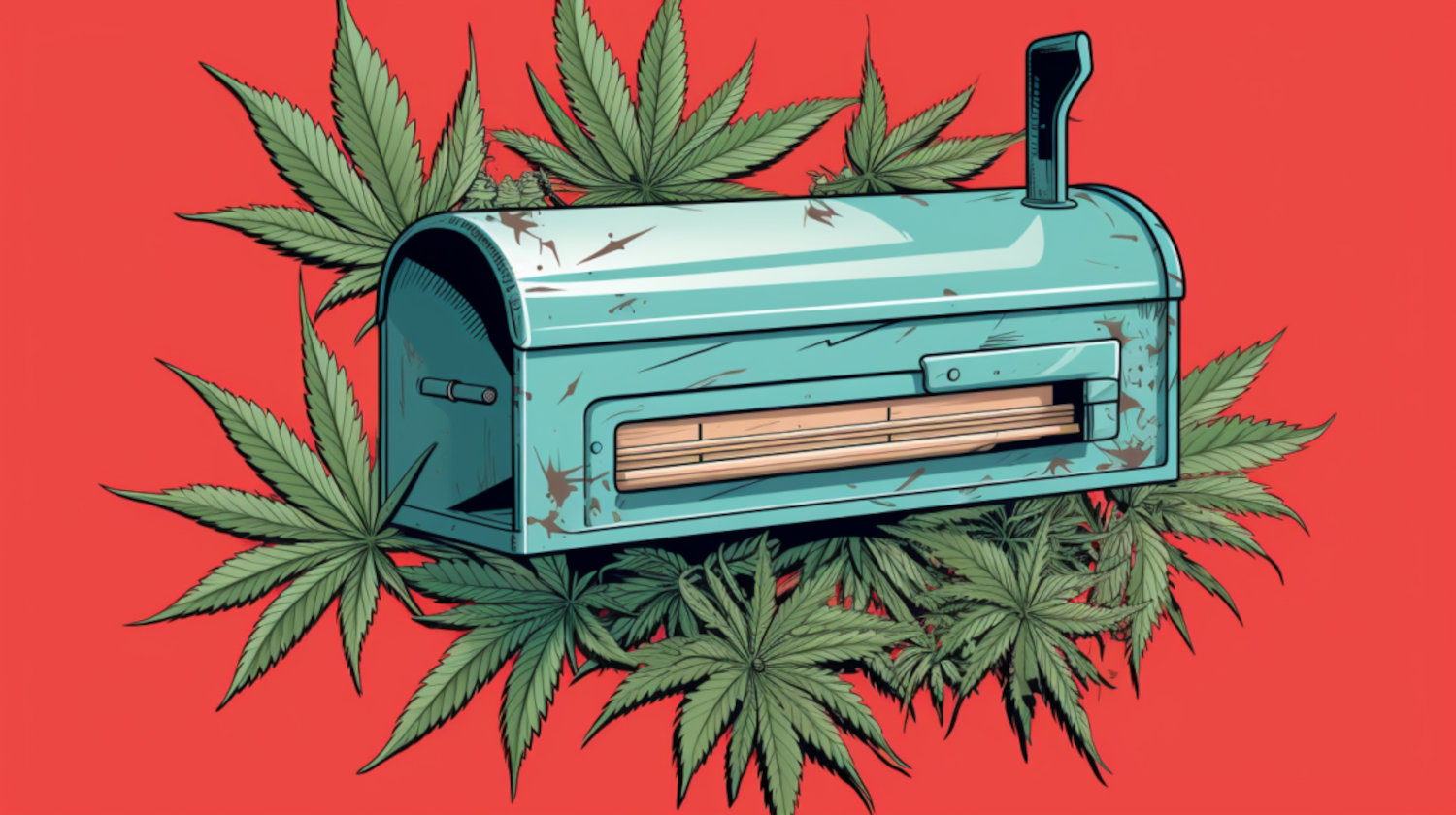Do you remember seeing an extensive array of hemp-infused products hit the market a few years back? CBD oil, creams, gummies, and even pet treats all promised a piece of the cannabinoid pie. This “green rush” can feel overwhelming for someone new to the scene. What is CBD? Amidst the mass array of products, how do you know where to start?
Navigating the world of CBD is easier than it seems. Whether you're curious about managing everyday stress, seeking natural pain relief, or simply intrigued by the latest wellness trend, understanding this key ingredient is the first step.
What is CBD (and what are Cannabinoids)?
"Cannabinoids" refers to a wide range of chemical compounds present in the cannabis plant. They interact with specialized receptors in the body's endocannabinoid system (ECS), which is composed of cannabinoid receptors, endocannabinoids (the cannabinoids the body makes), and associated proteins. The ECS plays a vital role in regulating various physiological processes to maintain balance - or homeostasis - within the body.
The endocannabinoid system is a complex network of signaling molecules and receptors distributed throughout the body. It modulates functions ranging from appetite and pain sensation to mood and memory. The two primary receptors in this system are cannabinoid receptor type 1 (CB1) and cannabinoid receptor type 2 (CB2).
CB1 receptors are predominantly found in the brain and nervous system but are also present in other tissues. They influence neurotransmitter release and have roles in cognition, memory, and pain perception. On the other hand, CB2 receptors are primarily located in immune cells and peripheral tissues, where they regulate immune response and inflammation.1
THC and CBD (cannabidiol) are perhaps the most well-known cannabinoids. CBD's potential therapeutic effects have gained attention, including anti-inflammatory, analgesic (pain-killing), and anxiolytic (anxiety-reducing) properties. Unlike THC (tetrahydrocannabinol), the prominent cannabinoid responsible for the psychoactive effects of cannabis, CBD does not produce intoxication.
Other notable cannabinoids include cannabinol (CBN), cannabichromene (CBC), and cannabigerol (CBG). Each of these cannabinoids interacts with the endocannabinoid system in unique ways, potentially offering various health benefits. For instance, CBC has anti-inflammatory and antibacterial properties, while CBN has anti-inflammatory and appetite-stimulant effects.2
How Does CBD Work?

CBD interacts with the endocannabinoid system (ECS) in a multifaceted manner, influencing various physiological processes and producing diverse effects in the body.
THC interacts with both the CB1 and CB2 receptors and has a strong binding affinity for the CB1 receptor, which is the cause of the “high” that cannabis use typically results in. On the other hand, CBD has a low affinity for CB1 receptors. In simple terms, this means that CBD does not produce the intoxicating effects that THC does. This makes it a preferable option for those who want to avoid the "high" associated with high-THC cannabis use. Instead, CBD may enhance the body's production of its own natural endocannabinoids by inhibiting their breakdown, thereby prolonging any potential benefits and effects.3
CBD may help reduce fear and chronic stress by interacting with serotonin receptors in the brain. Serotonin is a common chemical in the brain associated with positive feelings and emotions. It also helps reduce compulsive behavior through activation of the CB1 receptors. CBD also interacts with CB2 receptors and may help relieve pain via the TPRV receptors, especially inflammation and pain caused by injury. CBD may also play a role in decreasing blood pressure. Furthermore, some evidence suggests that CBD aids in sleep through the adenosine receptors.4
This is all to say that CBD is an amazing multifaceted chemical that can interact with the body's own natural systems in ways that offer numerous benefits.
Does CBD Get You High?
Although CBD and THC both affect the brain, they have very different effects. THC is intoxicating and produces the sensation of being "high." CBD is non-intoxicating and does not produce the “high” sensation.
CBD has many potential health benefits and can help with seizures, anxiety, and more without making you feel high or affecting your ability to think or move normally. It also doesn't seem to affect your pulse or blood pressure.
THC is often associated with relaxation and enjoyment, but at particularly high doses it can lead to unpleasant side effects such as anxiety, depression, and temporary impairments in memory, learning, and motor coordination.
THC can cause changes in heart rate and blood pressure, and it is also responsible for the intoxicating effects. In contrast, CBD does not produce any such effects. It does not impair cognitive or motor function, nor does it cause feelings of euphoria or alter perception. Various functional neuroimaging studies have confirmed that the effects of THC and CBD on the brain are different and often opposite to each other.
CBD Benefits and Uses

CBD has gained attention due to its potential therapeutic benefits for various health conditions.
Anxiety and Depression
CBD has been found to help with anxiety and depression symptoms. Research shows that CBD might work with serotonin receptors in the brain and help endogenous cannabinoids like anandamide stay active.5 This may make people feel less anxious and depressed. Studies have also shown that CBD may be a helpful treatment for anxiety disorders.
Epilepsy
Recently, CBD has emerged as a promising remedy for epilepsy, especially in instances of treatment-resistant cases. Extensive clinical investigations have scrutinized CBD's safety and effectiveness as a supplementary therapy. They have revealed significant reductions in seizure occurrences among patients with diverse forms of epilepsy. CBD's impact on epilepsy is attributed to its interaction with various receptors and channels, including transient receptor potential vanilloid (TRPV) channels, serotonin receptors, opioid receptors, and others.6
Cancer
Early studies indicate that CBD might possess anti-cancer properties, such as inhibiting cell growth, promoting cell death, and preventing cancer from spreading. However, it's important to note that this research is still in its early stages and shouldn't be interpreted as a definitive treatment for cancer.
Pain Management
CBD has been researched for its ability to relieve chronic pain in conditions like fibromyalgia, rheumatoid arthritis, neuropathic pain, and mixed pain syndromes. It's believed that CBD's pain-relieving effects occur through its interaction with cannabinoid and serotonin receptors, as well as by regulating inflammatory pathways. Both clinical trials and observational studies have shown that CBD can reduce pain severity and enhance the quality of life for individuals managing chronic pain.
Do anecdotal reports differ?
Anecdotal reports often align with scientific research findings regarding CBD's potential benefits. Many individuals have reported positive experiences with using CBD to manage anxiety, epilepsy, cancer-related symptoms, chronic pain, and other various health conditions.
However, anecdotal evidence alone is insufficient to establish CBD's efficacy or safety for medical purposes. Scientific research, including well-designed clinical trials, is necessary to validate these claims and determine the optimal dosages and delivery methods for different conditions.
CBD Oil Side Effects and Risks
CBD is generally considered well-tolerated with a good safety profile, according to current research. Similar to any supplement or medication, there are potential side effects and risks associated with CBD oil use.7
According to recent studies, common side effects of CBD oil may include:
- Somnolence (strong desire to fall asleep) or sedation
- Diarrhea
- Loss of appetite
- Fatigue
- Sleep disturbances
CBD may interact with other medications, particularly those that affect the central nervous system. Co-administration of CBD with benzodiazepines, opioids, antidepressants, antiepileptics, and antihistamines may have potential sedative effects and lead to excessive sedation. Patients and consumers should be cautious when combining CBD with other medications and avoid activities that require alertness, such as driving until they understand how CBD affects them.8
CBD is generally safe to use, but more research is necessary to fully understand the risks that may come with extended use or in high doses. Scientists are currently studying whether CBD could lead to liver damage, developmental problems, or affect the immune system - especially in humans.
That said, quality control and accurate labeling of CBD products remain concerns in the industry. That's why it is so important to only shop at licensed dispensaries. Unregulated CBD products may contain contaminants, such as metals and pesticides. Others may not accurately disclose the quantity of CBD or other cannabinoids present. As the CBD industry matures, there is a growing need for industry-wide standards to guarantee the quality and safety of CBD products.9
What Types of CBD are Available?

CBD is available in various forms, full-spectrum, broad-spectrum, and isolate, each offering unique characteristics and potential benefits.10
Full-Spectrum CBD
Full-spectrum CBD products contain all extracts of the cannabis plant, including CBD, terpenes, flavonoids, essential oils, and other cannabinoids such as THC. However, to comply with federal regulations, full-spectrum CBD products must contain less than 0.3% THC. This trace amount of THC is not enough to produce intoxicating effects but may contribute to the entourage effect, where the combined cannabinoids and terpenes work synergistically to enhance therapeutic benefits.
Broad-Spectrum CBD
Broad-spectrum CBD is a type of cannabidiol (CBD) product that contains a variety of cannabinoids and other compounds found in the cannabis plant but with little to no THC. It also includes other cannabinoids like cannabigerol (CBG), cannabichromene (CBC), and terpenes, which are aromatic compounds that contribute to the smell and taste of cannabis. These compounds may work together with CBD to produce the "entourage effect," which suggests that the combination of these compounds may be more beneficial than CBD alone.
Unlike full-spectrum CBD, broad-spectrum CBD is processed to remove most, if not all, of the THC. This makes it a good option for people who are concerned about the psychoactive effects of THC or who cannot have THC due to legal restrictions or personal preferences.
CBD Isolate
CBD isolate is the purest form of CBD, containing only CBD, with all other cannabinoids, terpenes, and plant compounds removed. CBD isolate products are entirely THC-free and offer precise dosing, making them a preferred choice for individuals who require high doses of CBD or want to avoid any risk of THC exposure.
Federally legal CBD products, such as those available in many retail stores and online, must have a THC concentration below 0.3%. This limit ensures compliance with federal regulations regarding hemp-derived products. Be aware that in dispensaries operating in recreational cannabis markets, CBD products may have different CBD:THC ratios. These ratios, such as 2:1 or 5:1, indicate the product's proportion of CBD to THC.
While CBD products sold outside of dispensaries typically contain minimal THC to comply with federal law, products sold in dispensaries may contain higher levels of THC for individuals seeking a balanced cannabinoid profile or specific therapeutic effects.
Where is CBD Legal?
The passage of the 2018 Farm Bill marked a significant milestone for the CBD industry in the United States. This legislation legalized the cultivation and commercial production of hemp and hemp-derived products, including CBD, at the federal level. According to the Farm Bill, hemp is defined as cannabis containing no more than 0.3% THC by dry weight. As a result, CBD products sourced from hemp that meet this THC threshold are legal under federal law.
Despite the legalization of hemp and CBD under the 2018 Farm Bill, the legality of certain hemp-derived cannabinoids, such as delta-8 THC, remains contentious. Delta-8 THC is a psychoactive cannabinoid that occurs naturally in trace amounts in hemp. Some companies will isolate and concentrate delta-8 THC from hemp to create products with higher potency levels.
While hemp and CBD are legal at the federal level, individual states retain the authority to enact their own regulations regarding the cultivation, distribution, and sale of hemp-derived products. Some states have implemented restrictions or prohibitions on CBD and hemp-derived cannabinoid sales, often requiring strict licensing and testing protocols for businesses operating in the industry.
In states with legal recreational cannabis markets, such as California, Colorado, and Oregon, consumers have access to a broader range of CBD products. These products may include CBD-infused edibles, beverages, topicals, and concentrates with varying cannabinoid ratios and potencies. The sale and purchase of these products are limited to individuals aged 21 and older and are subject to state-specific regulations.
Choosing the Best CBD Products

When making your decision for CBD products, make sure you choose the best products for you by considering these key factors for quality, safety, and effectiveness:
- Concentration: Check the CBD concentration listed on the product label. Higher concentrations may be more suitable for individuals seeking potent effects, while lower concentrations may be preferable for beginners or those with milder symptoms.
- Other Cannabinoids and Terpenes: In addition to CBD, consider products that contain a broad spectrum of cannabinoids and terpenes. These compounds work synergistically to enhance the therapeutic effects of CBD, a phenomenon known as the entourage effect. Look for full-spectrum or broad-spectrum CBD products that preserve the natural profile of the hemp plant.
- Lab Testing: Choose CBD products that have undergone third-party lab testing to verify their potency, purity, and safety. Lab reports, often available on the manufacturer's website or upon request, should confirm the cannabinoid content, absence of harmful contaminants (such as pesticides, heavy metals, and residual solvents), and adherence to quality standards.
- Reputable Brands: Opt for CBD products from reputable brands with a track record of transparency, quality, and customer satisfaction.11 Research the manufacturer's reputation, sourcing practices, extraction methods, and customer reviews to guarantee reliability and trustworthiness.
- Accurate Labeling and Dosage Guidance: Confirm that CBD products are accurately labeled with clear dosing instructions. Look for products that provide detailed information on CBD content per serving or dose, allowing for precise and consistent dosing. Avoid products with vague or misleading labeling practices.
- Preferred Product Type: When choosing CBD products, consider your preferred product type. Whether you prefer vapes, edibles, creams, or tinctures, select a type that aligns with your lifestyle and consumption preferences.
References
- Lu HC, Mackie K. Review of the Endocannabinoid System. Biol Psychiatry Cogn Neurosci Neuroimaging. 2021;6(6):607-615. doi:10.1016/j.bpsc.2020.07.016 ↩︎
- Walsh KB, McKinney AE, Holmes AE. Minor Cannabinoids: Biosynthesis, Molecular Pharmacology and Potential Therapeutic Uses. Frontiers in Pharmacology. 2021;12. https://doi.org/10.3389/fphar.2021.777804 ↩︎
- Martin-Santos R, Crippa JA, Batalla A, et al. Acute effects of a single, oral dose of d9-tetrahydrocannabinol (THC) and cannabidiol (CBD) administration in healthy volunteers. Current pharmaceutical design. 2012;18(32):4966-4979. https://doi.org/10.2174/138161212802884780 ↩︎
- Lowe H, Toyang N, Steele B, Bryant J, Ngwa W. The Endocannabinoid System: A Potential Target for the Treatment of Various Diseases. International Journal of Molecular Sciences. 2021; 22(17):9472. https://doi.org/10.3390/ijms22179472 ↩︎
- Peng J, Fan M, An C, Ni F, Huang W, Luo J. A narrative review of molecular mechanism and therapeutic effect of cannabidiol (CBD). Basic & Clinical Pharmacology & Toxicology. 2022;130(4):439-456. https://doi.org/10.1111/bcpt.13710 ↩︎
- Rapin L, Gamaoun R, El Hage C, Arboleda MF, Prosk E. Cannabidiol use and effectiveness: real-world evidence from a Canadian medical cannabis clinic. Journal of Cannabis Research. 2021;3(1). https://doi.org/10.1186/s42238-021-00078-w ↩︎
- Millar SA, Maguire RF, Yates AS, O’Sullivan SE. Towards Better Delivery of Cannabidiol (CBD). Pharmaceuticals. 2020;13(9):219. https://doi.org/10.3390/ph13090219 ↩︎
- Brown JD, Winterstein AG. Potential Adverse Drug Events and Drug–Drug Interactions with Medical and Consumer Cannabidiol (CBD) Use. Journal of Clinical Medicine. 2019;8(7):989. https://doi.org/10.3390/jcm8070989 ↩︎
- Li J, Carvajal R, Bruner L, Kaminski NE. The current understanding of the benefits, safety, and regulation of cannabidiol in consumer products. Food and Chemical Toxicology. 2021;157:112600. doi.org/10.1016/j.fct.2021.112600 ↩︎
- Cather JC, Cather JC. Cannabidiol primer for healthcare professionals. Proc (Bayl Univ Med Cent). 2020;33(3):376-379. Published 2020 Jul 6. doi:10.1080/08998280.2020.1775437 ↩︎
- MacCallum CA, Lo LA, Pistawka CA, Boivin M. A Clinical Framework for Evaluating Cannabis Product Quality and Safety. Cannabis Cannabinoid Res. 2023;8(3):567-574. doi:10.1089/can.2021.0137 ↩︎
The information in this article and any included images or charts are for educational purposes only. This information is neither a substitute for, nor does it replace, professional legal advice or medical advice, diagnosis, or treatment. If you have any concerns or questions about laws, regulations, or your health, you should always consult with an attorney, physician or other licensed professional.




